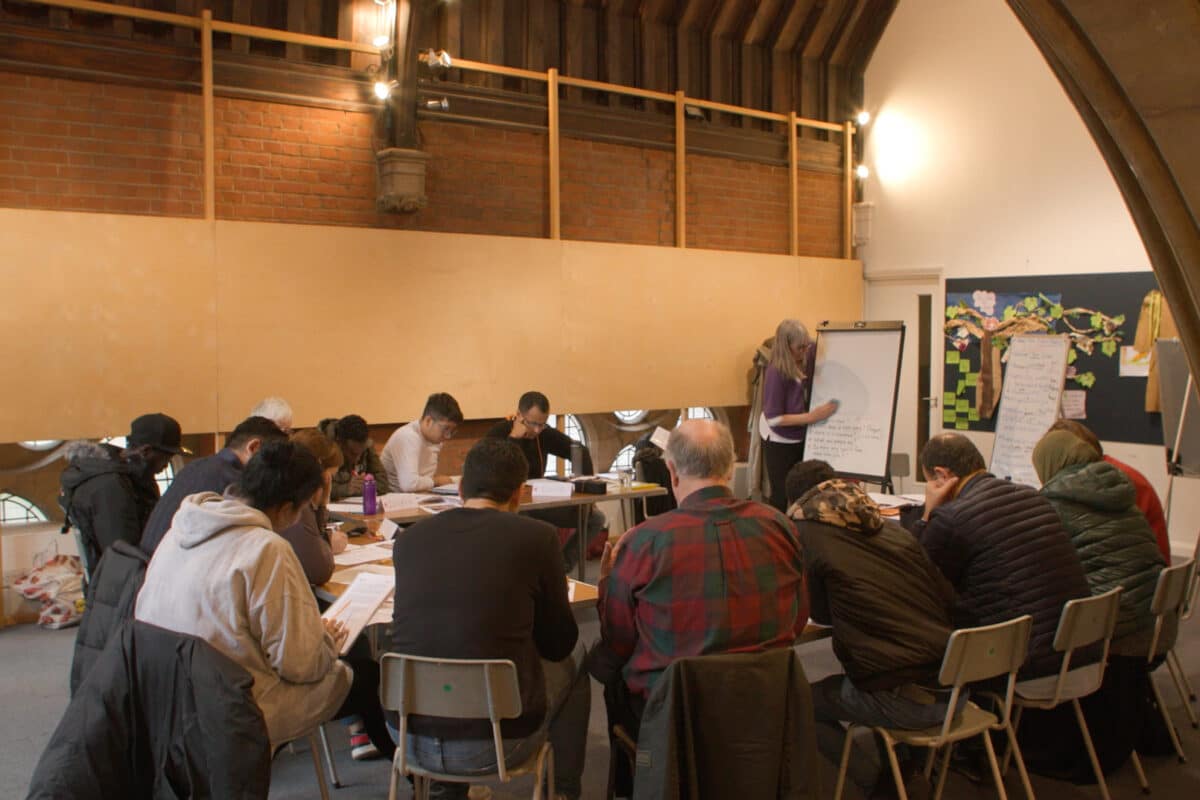Refugees attending the weekly drop in at a West London Church share their fears at the prospect of homelessness.
Due to a recent Home Office change in practice, refugees receiving their leave to remain are becoming homeless in increasing numbers. This short film shares the experiences of both refugees and volunteers at EASE (Ealing and Acton Support Enterprise), a local community project hosted by a West London church, who support refugees and asylum seekers.
After waiting months, or years, for a decision by the Home Office, the receipt of the good news that someone has been granted refugee status should be a moment of excitement. Instead it is a moment of fear as newly recognised refugees are sent eviction letters.
The Red Cross estimates that it takes at least 35 days to start getting Universal Credit, and local authorities need at least 56 days to help with finding accommodation.
Mohamad attends the EASE drop in and has just had his refugee status granted:
“The letter said that I have to leave the accommodation in a week. I wish no one to be in the same situation I was in. Once the news arrived, I was shocked and started panicking.
The only thing that was going through my mind was the idea of sleeping outside in this weather in my 50s.”
EASE, like many other community organisations, faith groups and charities, works with people staying in local hotels waiting to hear about their asylum claim. Dedicated volunteers come together to provide a warm welcome at their weekly drop-in, as well as practical support in the form of food provision, English classes, and baby essentials for families.
Volunteers express their dismay as they witness newly recognised refugees who they have got to know, face the prospect of homelessness. Some have responded by welcoming refugees into their own homes through hosting.



Ally is one of the English language teachers at the drop in who is now hosting a refugee:
“They have worked so hard to get their English to a level. They desperately want to integrate, but they find it impossible to find anywhere to rent.
Anywhere they look at privately they need six months’ employment history. Anywhere they look to work, they want a permanent address. If they then become street homeless, it’s so difficult to recover from that.”
EASE and the Diocese of London (alongside other organisations supporting refugees) are calling for the government to uphold a 28 day move on period, with the intention of moving to a 56 day period as soon as possible.
We also urge the government to stop evictions during very low temperatures, at the very least when Severe Weather Emergency Protocol arrangements are activated.
As we await these necessary changes in practice:
- If you have a spare room, you can offer it to a refugee in need through a recognised hosting scheme. Two excellent hosting projects are run by Refugees At Home and Housing Justice Hosting Project. Or contact us to be connected to a hosting project, or to explore providing paid lodging for a newly recognised refugee.
- If you or anyone you know have properties you may be willing to rent to a refugee at Local Housing Allowance rate (less than market rate) please get in touch with us to explore this possibility.
- Church communities in the Diocese of London supporting newly recognised refugees experiencing homelessness can contact the Compassionate Communities team for support where desired. This will also help us to gather data to document the scale of the crisis.
- If you would like to know more about the work of EASE, you can get in touch with them.
